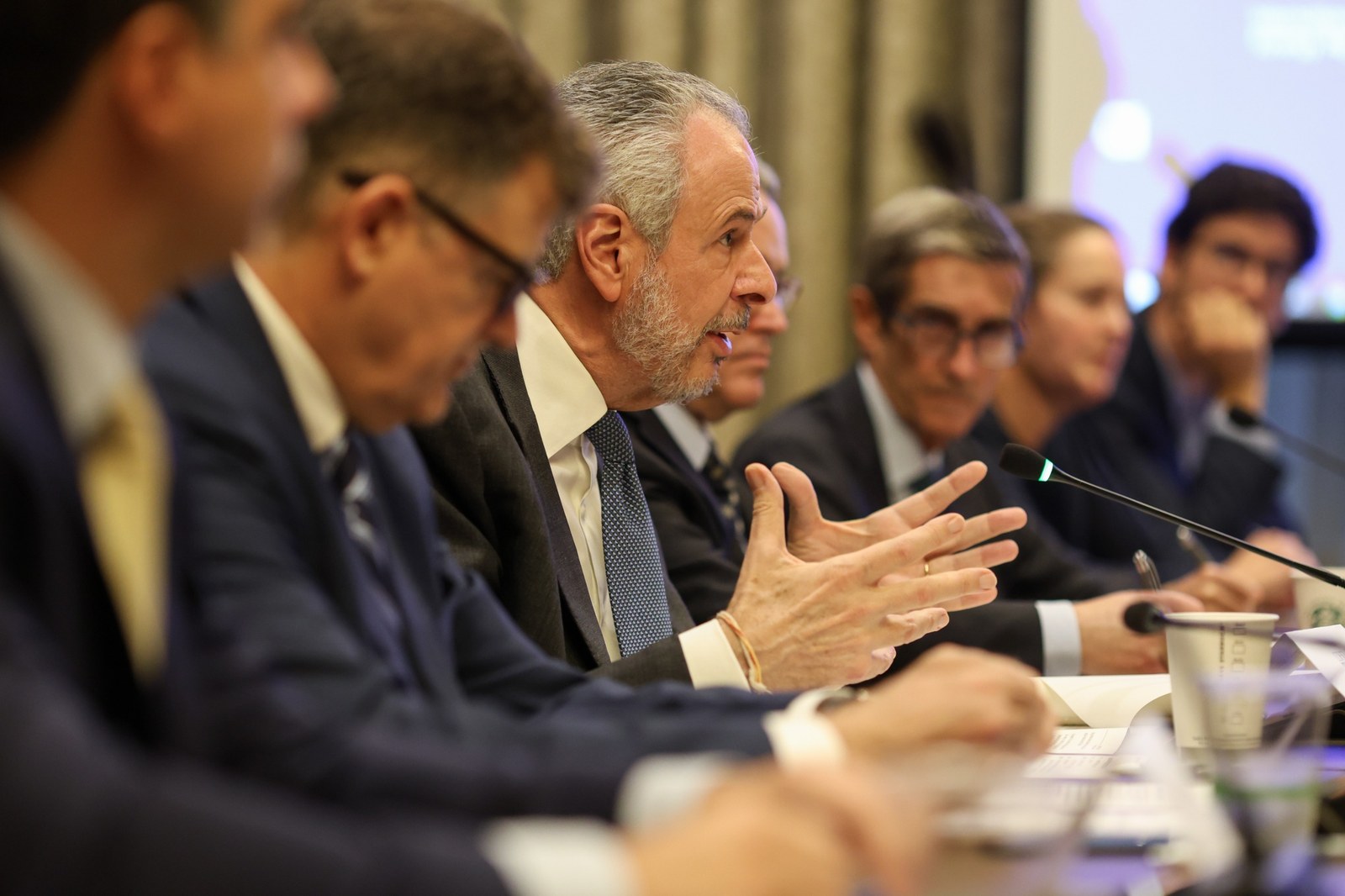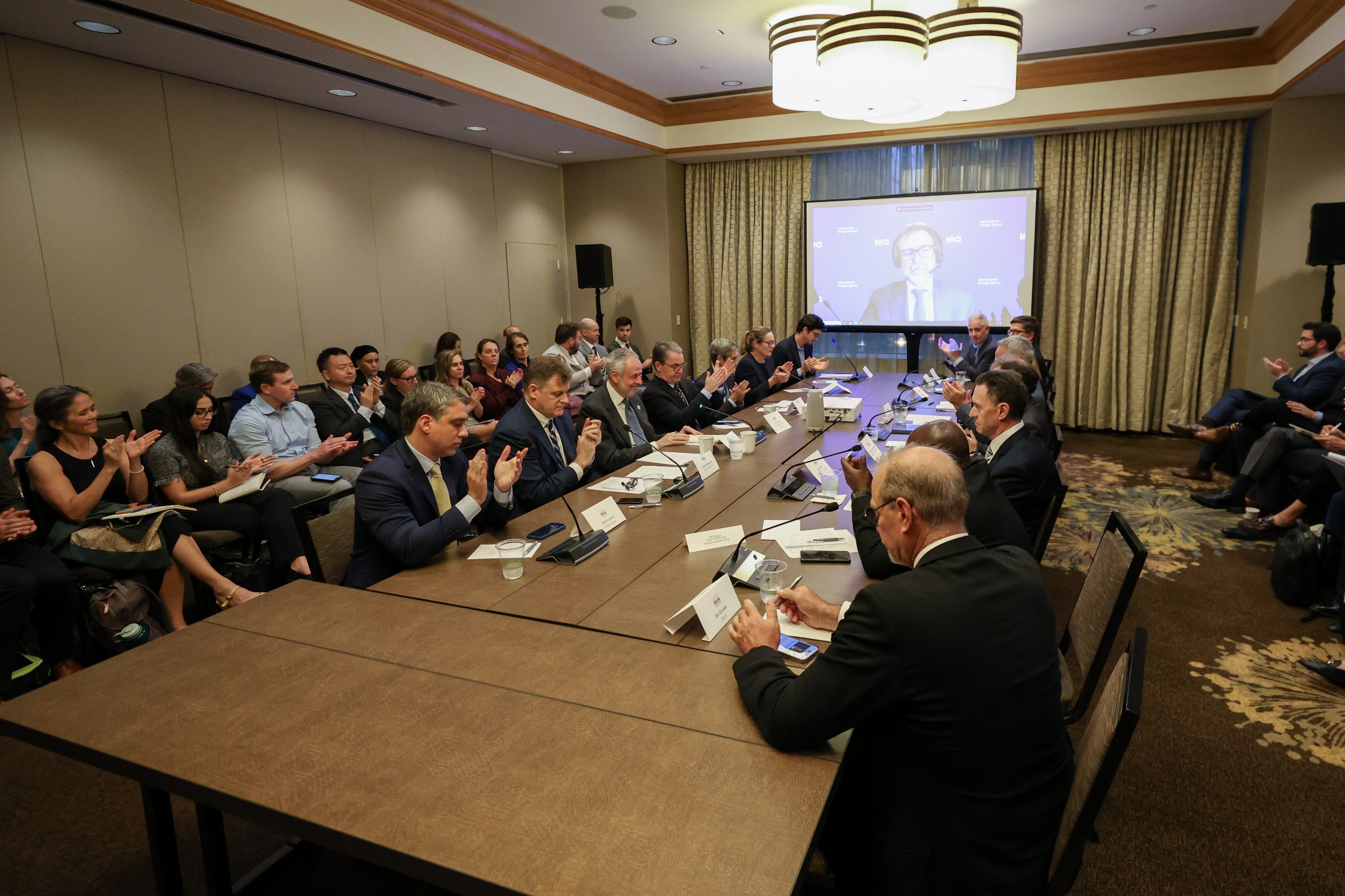COP30 President Calls for Investments in Sustainable Fuels
At a meeting with the public, private, and financial sectors, André Corrêa do Lago stressed the importance of the energy transition

By Laura Marques/COP30
At a meeting with representatives of the international industry during New York Climate Week, COP30 President, Ambassador André Corrêa do Lago, highlighted that sustainable fuels are essential to achieving the Net-Zero target for greenhouse gas emissions. He stressed that strengthening the production and supply chain of inputs (such as hydrogen and its derivatives, biogases, biofuels, and e-fuels) is necessary to ensure that the population’s demands for energy, transportation, goods, and quality jobs are met throughout the energy transition.
“Sustainable molecules are as important as sustainable electrons to achieve net zero goals. Electrification and fuels, electrons and molecules, are largely complementary, and essential to the energy transition. We can not achieve our goals unless we have both”. He stressed.
The ambassador made the statements while participating in the Industry Dialogue - Sustainable Fuels at COP30, last Tuesday, September 23.
Private Sector

During the event, leaders from across the sustainable fuels value chain handed a letter to Corrêa do Lago, encouraging the COP30 Presidency to drive international collaboration and commitments to scale up the production and use of sustainable fuels.
“In order to achieve that, we need to collaborate and work together to overcome existing barriers, such as lack of interoperability of carbon accounting methodologies, high costs, lack of clear demand signals, and, in some cases, need for investment in new infrastructure”. The ambassador pointed out.
The letter, signed by more than 50 companies worldwide, highlights the key bottlenecks that must be overcome for the private sector to make the necessary investments to multiply the production of sustainable molecules capable of replacing fossil fuels in hard-to-abate sectors such as industry, transport, and chemicals. The document also includes regulatory policy recommendations that, if adopted by national governments and subnational entities, could spur investments.
Ambassador Maurício Lyrio, Secretary for Climate, Energy and Environment at Brazil’s Ministry of Foreign Affairs(Ministérios das Relações Exteriores/ Itamaraty), closed the meeting by warning against downplaying the urgency of accelerating the energy transition. He emphasized that it is crucial to preserve the priority status of the transition as a shared task for all countries to meet climate and sustainable development goals.
“One of Brazil’s priorities at COP30 is the promotion of sustainable fuels as a solution for hard-to-abate sectors. We invite all countries to join the initiatives Brazil is advancing on this matter, particularly the pledge to quadruple global production and use of sustainable fuels by 2035, to be adopted at the Belém Summit,” Ambassador Lyrio stressed.
Pathways to Advance
Mr. Corrêa do Lago reported that the International Energy Agency (IEA) presented preliminary findings from a forthcoming report indicating that it is feasible to quadruple the use of sustainable fuels by 2035. However, according to the COP30 President, realizing this projection will depend on joint efforts.
“To achieve this goal, we need to collaborate and work together to overcome existing barriers, such as the lack of interoperability in carbon accounting methodologies, high costs, the absence of clear demand signals, and, in some cases, the need for investment in new infrastructure,” the ambassador pointed out.
Brazil is preparing a proposal for COP30 leaders to endorse a global pledge to quadruple the production and use of sustainable fuels (including biofuels, biogases, synthetic fuels, and hydrogen and its derivatives) by 2035.
The official launch of the declaration and the publication of the IEA report are scheduled to take place at the Pre-COP in Brasília on October 14. From then on, the document will be open for endorsement.
English version: Trad. Bárbara Menezes.
Proofreading Enrique Villamil.
